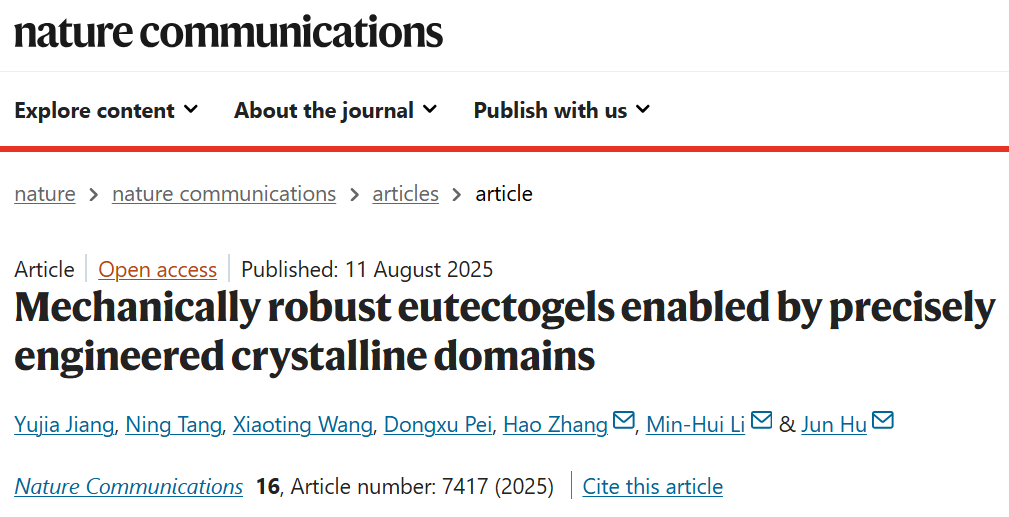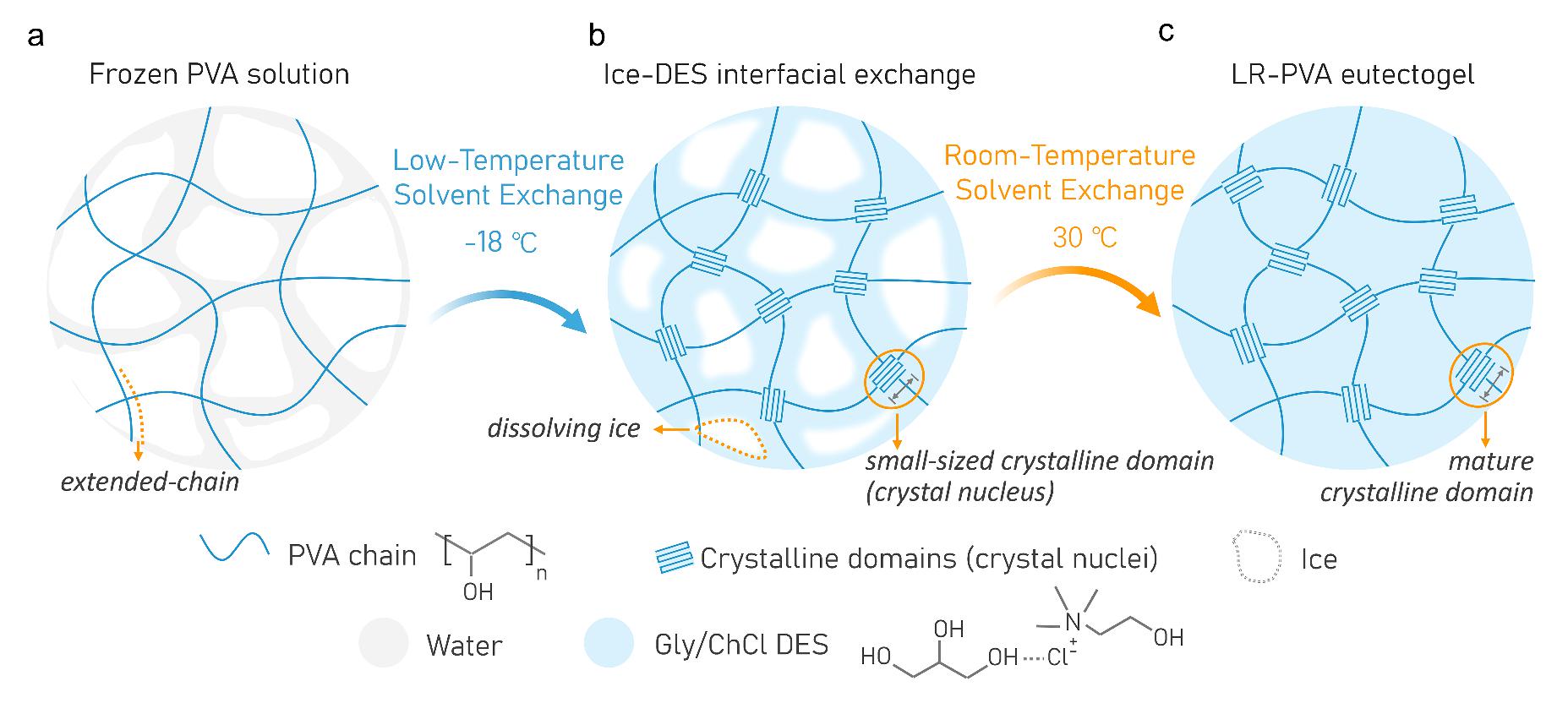
The development of high-performance gel materials with superior mechanical properties and environmental stability is of great significance for advancing biomedical engineering, energy storage devices, and flexible electronics applications. Eutectogels, defined as polymer networks swollen with deep eutectic solvents (DES), have emerged as promising candidates due to their negligible volatility, high thermal stability, and good ionic conductivity. However, existing eutectogels commonly suffer from fragile network structures, facing the fundamental challenge of simultaneously achieving high modulus, strength, and toughness. This challenge stems from conflicting structural requirements: high strength demands densely crosslinked rigid networks, while high toughness necessitates flexible energy dissipation mechanisms. Traditional reinforcement strategies such as freezing-thawing cycles and thermal annealing show limited effectiveness in eutectogel systems, making the development of innovative approaches for mechanically robust eutectogels a critical need.
Recently, Prof. Jun Hu, in collaboration with Prof. Min-Hui Li from Chimie ParisTech, PSL University, and Dr. Hao Zhang from Tsinghua University, developed a variable-temperature solvent exchange (VTSE) strategy to fabricate mechanically robust eutectogels through precisely engineered crystalline domains. The approach implements a two-stage solvent exchange process using poly(vinyl alcohol) (PVA), water, and glycerol/choline chloride DES. Initially, frozen PVA aqueous solution undergoes low-temperature (-18 °C) solvent exchange with DES, effectively locking polymer chains in relatively extended conformations while facilitating crystal nuclei formation through liquid-solid exchange. Subsequently, room-temperature (30 °C) solvent exchange enhances polymer chain mobility, enabling progressive folding and alignment onto existing nuclei to form mature crystalline domains.
The resulting LR-PVA20 eutectogels exhibit exceptional mechanical properties with Young's modulus of 103.1 MPa, tensile strength of 40.5 MPa, toughness of 86.8 MJ m-3, and fracture energy of 98.7 kJ m-2, significantly surpassing conventional hydrogels, organogels, and ionogels. Due to the dual function of crystalline domains as both physical crosslinking points and energy dissipators, the eutectogels successfully overcome the traditional stiffness-toughness trade-off while demonstrating excellent crack propagation resistance with tearing energy of 99.1 kJ m-2. Furthermore, the VTSE strategy shows broad applicability across various solvent systems, including different DES compositions, organic solvents, and aqueous solutions, with eutectogels consistently exhibiting the highest Young's modulus among all tested systems. This versatile strategy for engineering high-performance eutectogels will inspire the development of advanced functional gel materials for cutting-edge applications.

The related work, titled "Mechanically robust eutectogels enabled by precisely engineered crystalline domains" is published in Nature Communications. The first author is Yujia Jiang, a master graduate from the Advanced Innovation Center for Soft Matter Science and Engineering. Prof. Jun Hu, Prof. Min-Hui Li, and Dr. Hao Zhang are the co-corresponding authors. This research was supported by the Beijing Natural Science Foundation and the National Natural Science Foundation of China.
Article Information: Yujia Jiang, Ning Tang, Xiaoting Wang, Dongxu Pei, Hao Zhang*, Min-Hui Li* and Jun Hu*. Mechanically robust eutectogels enabled by precisely engineered crystalline domains. Nat. Commun. 2025, 16, 7417.
Original Article Link: https://www.nature.com/articles/s41467-025-62742-6